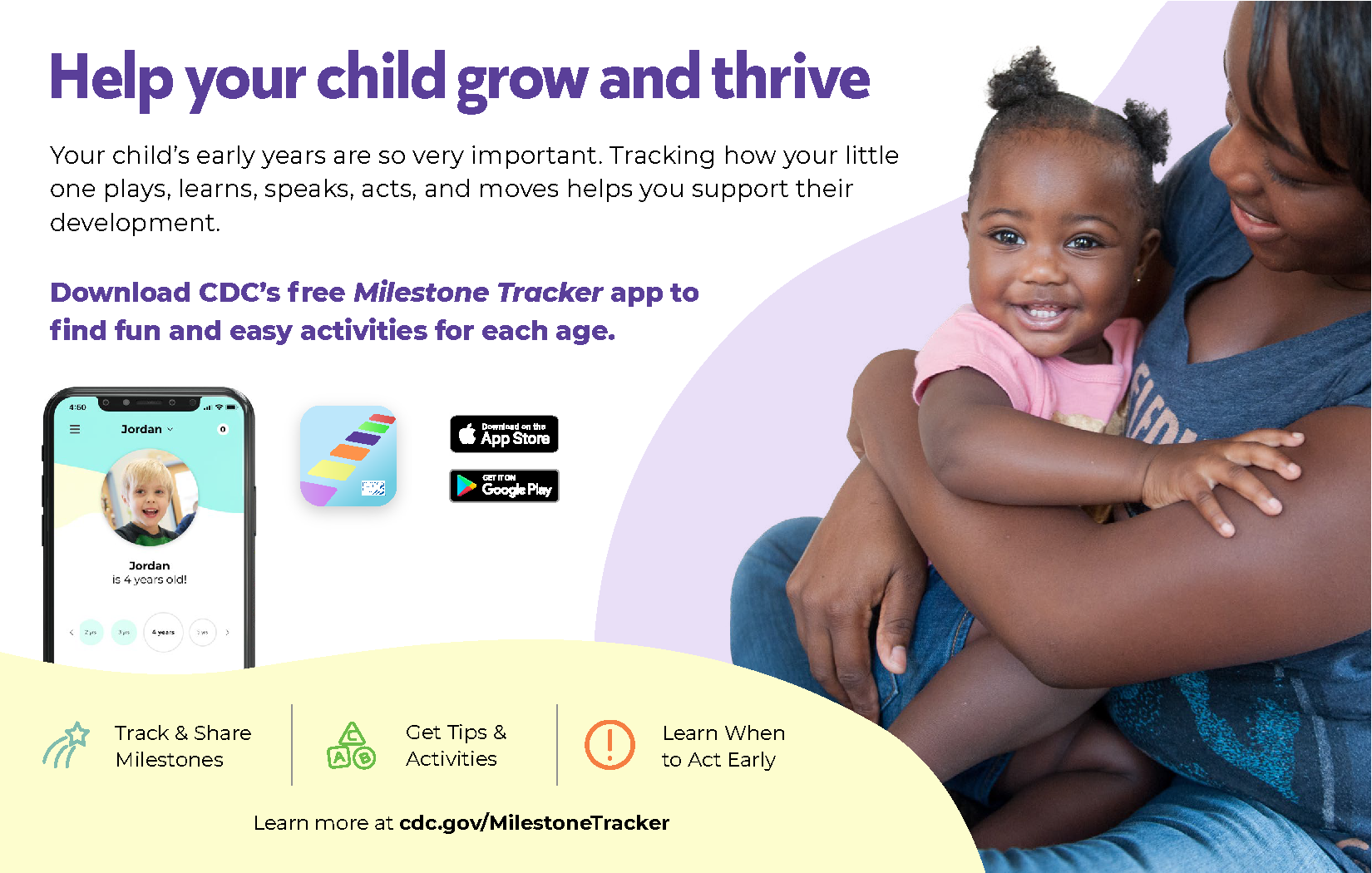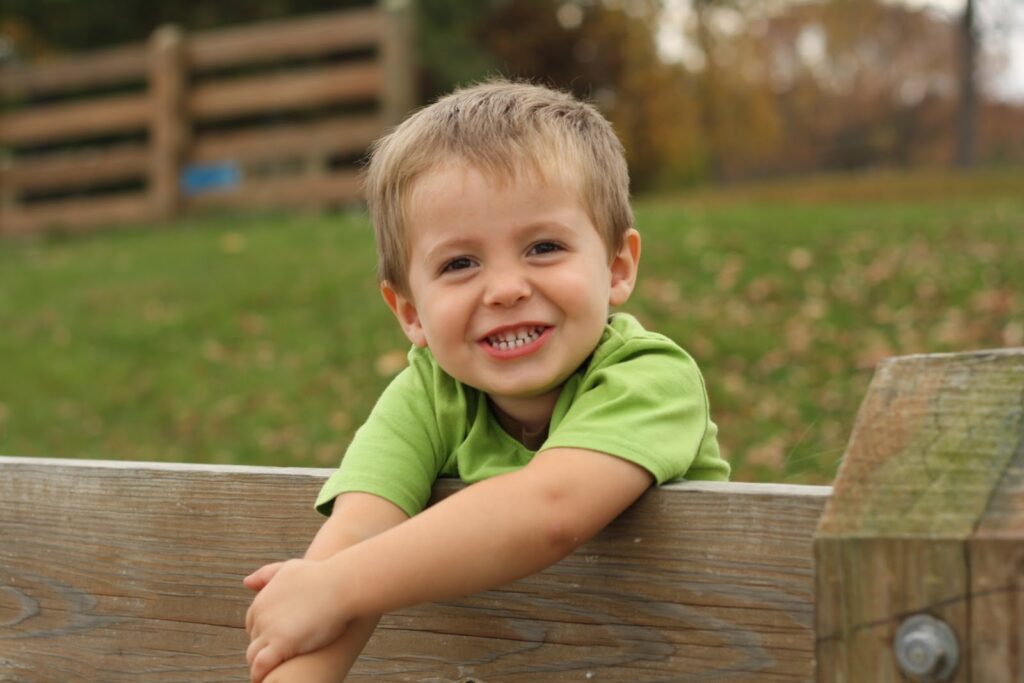Baby development refers to the stages of growth and progress that infants go through during their first year of life, including social and emotional development, language and communication skills, cognitive development, and movement and physical abilities. These milestones occur in a predictable sequence and can be helpful in determining a baby’s overall development.
From smiling and tracking objects with their eyes in the first few months to sitting up, crawling, and eventually walking, each stage of a baby’s development is unique and important. Understanding these milestones can assist parents and caregivers in providing appropriate support and stimulation to promote their baby’s healthy growth and development.

Credit: autismnj.org
Table of Contents
ToggleKey Milestones In The First Year
During the first year of a baby’s life, they experience incredible growth and development. From social and emotional development to language and communication skills, cognitive development to movement and physical milestones, each stage brings new achievements. Let’s explore the key milestones in the first year of a baby’s life.
Social & Emotional Development
Social and emotional development is a crucial aspect of a baby’s growth. Below are some key milestones to look out for:
- Recognizes familiar faces and may show attachment to primary caregivers.
- Responds to smiles and laughs, beginning to understand emotions.
- Expresses joy, frustration, and other basic emotions.
- Engages in social play, such as peek-a-boo and pat-a-cake.
Language & Communication Development
Language and communication skills are vital for a baby’s overall development. Here are some important milestones to observe:
- Begins cooing, making vowel sounds.
- Responds to simple commands, like “no” or “bye-bye.”
- Babbles and experiments with different sounds.
- Recognizes their name and starts saying simple words.
Cognitive Development
Cognitive development refers to a baby’s ability to learn, think, and problem solve. These milestones are indicative of cognitive growth:
- Demonstrates curiosity, by reaching for objects and exploring their surroundings.
- Understands simple cause and effect relationships.
- Imitates actions and starts to show problem-solving skills.
- Begins to understand object permanence, realizing objects still exist even when out of sight.
Movement & Physical Development
Physical development plays a vital role in a baby’s milestones. Take note of these movement and physical development milestones:
- Lifts their head and begins to hold it steady.
- Rolls over from tummy to back, and then back to tummy.
- Sits up with support and eventually sits unassisted.
- Crawls, stands with help, and starts taking their first steps.
These are just some of the key milestones to expect during a baby’s first year. Remember that every baby develops at their own pace, so it’s essential to provide a nurturing and supportive environment to encourage healthy growth and development.

Credit: www.slideserve.com
Fetal Development Stages
Baby development is an incredibly fascinating and awe-inspiring process. Understanding the stages of fetal development can offer insight into the incredible journey a baby goes through before entering the world. The three main stages of fetal development are the germinal stage, the embryonic stage, and the fetal stage. Each stage plays a crucial role in shaping the growth and formation of the baby.
Germinal Stage
During the germinal stage, the fertilized egg, or zygote, begins a rapid process of cell division, ultimately forming a blastocyst. This blastocyst will then make its way to the uterus, where it will eventually implant itself in the uterine wall. This stage marks the very beginning of the baby’s development, and it is incredibly crucial for laying the foundation for the embryo that will soon follow.
Embryonic Stage
As the blastocyst implants itself in the uterine wall, the embryonic stage begins. This stage is particularly significant because it is during this time that the major organs and body systems begin to develop. The heart, brain, and limbs start to form, and the embryo becomes more recognizable as a developing human being. By the end of the embryonic stage, the embryo is about the size of a grape and is ready to transition into the next phase of development.
Fetal Stage
The fetal stage marks the final phase of prenatal development. At this point, the embryo is now referred to as a fetus and undergoes rapid growth and maturation. The external features continue to develop, and the fetus becomes more active, with the ability to move and respond to stimuli. Organs mature, and the body becomes more proportionate, preparing the baby for the transition to life outside the womb.
Month-by-month Baby Growth
Tracking your baby’s month-by-month growth is an exciting part of baby development. From their first smile, giggle, steps, and words, to challenges like colic, it’s a journey full of milestones. Observing their social, emotional, cognitive, and physical development is truly rewarding for parents.
First Month
During the first month of your baby’s life, they will undergo incredible growth and development. It’s an exciting time as you observe your little one adapting to the world around them. Here are some milestones you can expect in the first month:
– Your baby will start to recognize your voice and will turn their head towards familiar sounds.
– They will begin to focus on objects that are close to their face and may even follow them with their eyes.
– Your baby’s reflexes, such as grasping and sucking, will become more coordinated.
– They will start to have longer periods of alertness, allowing for more interaction and bonding.
Second Month
As your baby enters their second month of life, their growth and development continue at a rapid pace. Here are some milestones you can expect in the second month:
– Your baby’s neck muscles will strengthen, allowing them to hold their head up for short periods of time.
– They will begin to smile in response to familiar faces and voices.
– Your baby will start to make cooing sounds and may even try to imitate your facial expressions.
– They may show interest in toys and objects, reaching out to touch and explore them.
Third Month
By the third month, your baby will start showing even more growth and development. Here are some milestones you can expect in the third month:
– Your baby’s hand-eye coordination will improve, and they may be able to bat at and grasp objects with greater precision.
– They will start to show more control over their head and neck movements, allowing for better head control when held upright.
– Your baby will begin to babble and make a wider variety of sounds.
– They may start rolling from their back to their side or stomach, showing the beginning stages of mobility.
Fourth Month
As your baby reaches their fourth month, their growth and development continue to amaze. Here are some milestones you can expect in the fourth month:
– Your baby will become more interactive and may engage in simple games like peek-a-boo.
– They will start to show an increased interest in their own hands and feet.
– Your baby will begin to reach for and grab objects intentionally.
– They may start rolling from their stomach to their back and vice versa.
Fifth Month
In the fifth month, your baby’s growth and development take another leap forward. Here are some milestones you can expect in the fifth month:
– Your baby will start to recognize their own name and respond to it.
– They will demonstrate improved hand-eye coordination, picking up smaller objects with ease.
– Your baby will show more control over their body movements, such as sitting with support or rolling over.
– They may start to develop the ability to soothe themselves by sucking on their fingers or thumb.
Sixth Month
As your baby enters their sixth month, they will continue to amaze you with their growth and development. Here are some milestones you can expect in the sixth month:
– Your baby will start to sit up independently, with or without support.
– They will begin to exhibit more advanced motor skills, such as reaching for objects while sitting.
– Your baby will start to explore their surroundings by grabbing and shaking objects.
– They may start babbling more, using different consonant sounds like “ba” and “ma.”
Seventh Month
By the seventh month, your baby’s growth and development will progress further. Here are some milestones you can expect in the seventh month:
– Your baby will start to develop a pincer grasp, using their thumb and forefinger to pick up small objects.
– They will begin to show an increased interest in the world around them, actively exploring their environment.
– Your baby will start to understand simple commands, such as “no” or “come here.”
– They may begin to show signs of teething, drooling more and putting objects in their mouth for relief.
Eighth Month
In the eighth month, your baby’s growth and development continue to flourish. Here are some milestones you can expect in the eighth month:
– Your baby will start to crawl or scoot on their belly, exploring their surroundings in a whole new way.
– They will demonstrate better hand-eye coordination, improving their ability to manipulate small objects.
– Your baby will begin to understand object permanence, realizing that objects still exist even when they can’t see them.
– They may start to pull themselves up to a standing position using furniture or your hands for support.
Monitoring Developmental Milestones
Monitoring your baby’s developmental milestones is crucial for tracking their growth and progress. From social and emotional development to language and physical milestones, keeping an eye on these stages will help ensure your baby’s healthy development.
Cdc’s Developmental Milestones Checklist
CDC’s Developmental Milestones serve as an essential tool for tracking a child’s growth and development. This comprehensive checklist covers various areas including social and emotional development, language and communication skills, cognitive abilities, and physical movement. Recognizing and understanding these milestones aid in ensuring a child’s healthy progression.
Importance Of Regular Checkups
Regular checkups are crucial for monitoring a child’s developmental milestones. They provide an opportunity for healthcare professionals to assess a child’s growth, identify any potential developmental delays, and provide early intervention if necessary. Through these regular evaluations, parents and caregivers can gain valuable insights into their child’s progress and receive guidance on promoting their overall well-being.
By staying informed and regularly monitoring a child’s milestones, parents can actively participate in their child’s development and address any concerns promptly.
Tracking Baby Development
Baby development is a fascinating journey to witness as your little one grows and achieves new milestones at a rapid pace. Tracking your baby’s development not only allows you to monitor their progress but also provides valuable insights into their growth and well-being.
Online Resources For Baby Milestones
- WebMD offers detailed guides on each month’s milestones in your baby’s first year.
- CDC’s Developmental Milestones page provides crucial information on child development stages.
- Pregnancy, Birth and Baby website is a great resource for tracking baby milestones and stages.
Baby Development Apps
- BabySparks app offers activities to promote your baby’s development and tracks their progress.
- Glow Baby tracks feeding, diaper changes, sleep schedules, and developmental milestones.
- The Wonder Weeks app helps you understand your baby’s mental development leaps.
Expert Insights & Advice
Gain expert insights and advice on baby development milestones, covering social, language, cognitive, and physical growth aspects essential for your child’s progress during the crucial first year. Understand the stages of body development from germinal to fetal, and track your baby’s growth and achievements month by month for a well-rounded developmental journey.
Pediatrician Recommendations
Consult your pediatrician for personalized advice on your baby’s development.
Common Concerns And Solutions
Address common concerns such as feeding issues or sleep patterns with practical solutions.
- Pediatricians are valuable resources for tracking your baby’s progress.
- They offer guidance on nutrition, vaccinations, and overall well-being.
- Regular check-ups help monitor your baby’s growth milestones.
- Feeding difficulties can often be overcome with professional guidance.
- Sleep regressions are common but can be managed with a consistent routine.

Credit: howtotalk.com
Frequently Asked Questions On Baby Development
What Are The Baby Stages From 0 To 12 Months?
The baby stages from 0 to 12 months include social, language, cognitive, and physical development milestones. In the first year, babies achieve social, communication, learning, and movement milestones.
What Are The 5 Stages Of Child Development?
Child development stages are: infancy, toddlerhood, preschool age, school age, and adolescence. Each phase has distinct milestones.
What Are The 5 Milestones Of Infant Development?
The 5 milestones of infant development are social & emotional development, language & communication development, cognitive development, and movement & physical development.
What Are The Stages Of The Body Development Of A Baby?
The stages of body development for a baby are fetal development, embryonic development, and fetal development.
Conclusion
As your baby grows and develops, it’s important to track their progress and milestones. From social and emotional development to language and communication skills, cognitive development to physical movement, each stage of your baby’s development is a unique and exciting experience.
By understanding and celebrating these milestones, you can support your baby’s growth and create a nurturing environment for them to thrive. Remember, every baby is different, so don’t compare your little one to others. Instead, focus on providing love, care, and opportunities for learning and exploration.
Enjoy this incredible journey of baby development!

Mother of Two children. I’m a former teacher with a background in child development and a passion for Good parenting. I understand child development and know how to develop activities to help children learn and grow. Spare time, I enjoy spending time with my family, reading, and volunteering in my community. Read More








